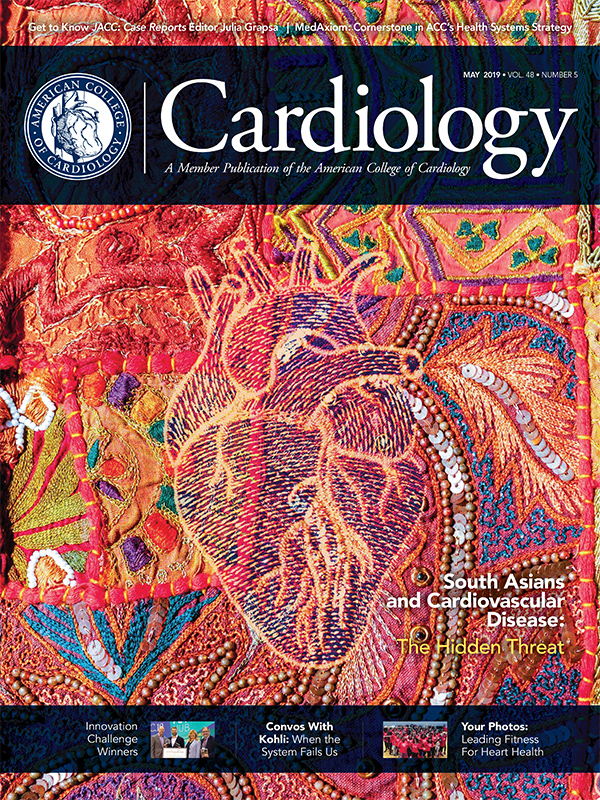Feature | Get to Know Julia Grapsa, MD, PhD, FACC
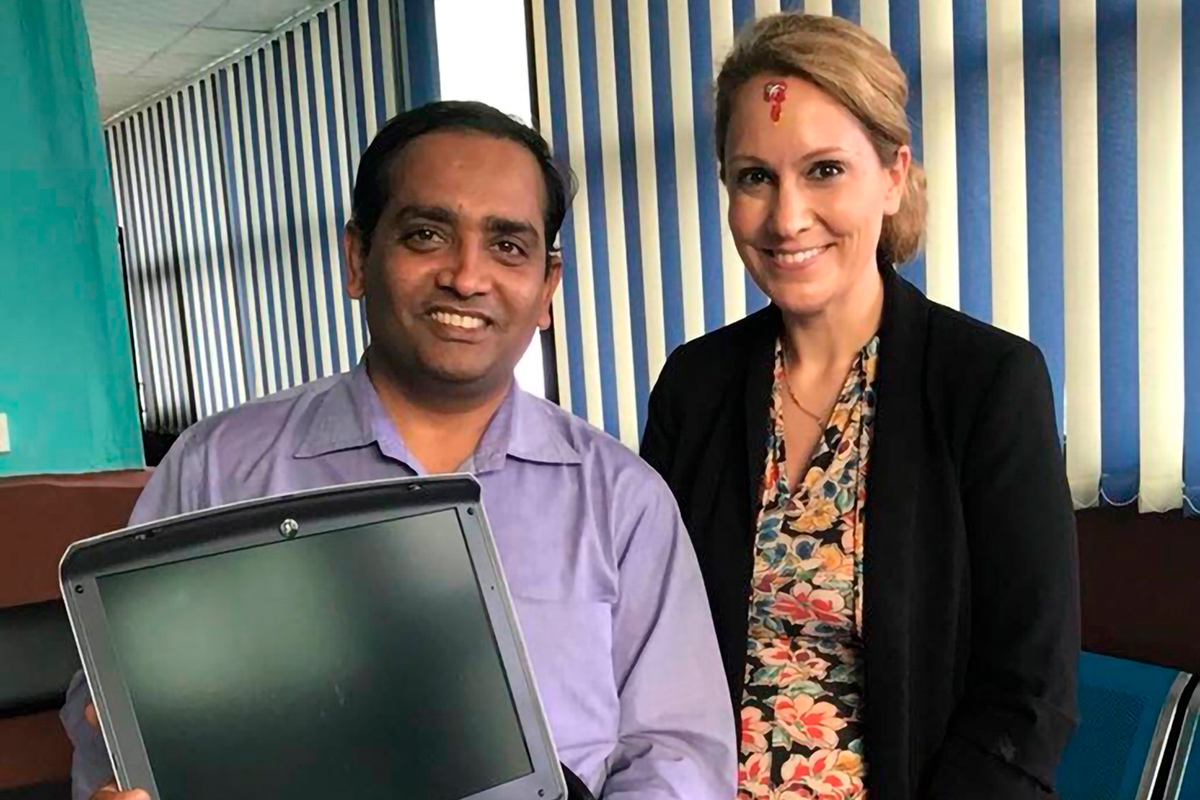
Next month brings the launch of JACC: Case Reports, the newest journal in the growing JACC Family. Editor-in-Chief Julia Grapsa, MD, PhD, FACC, shared with Cardiology her vision of a journal that is an engaging, interactive forum and teaching tool for cardiovascular professionals and the Cardiovascular Team.
She also talked about her professional journey and a bit about life beyond work. Bookmark JACC.org and starting in June, look for this new, open access journal.
What is the vision for JACC: Case Reports? Why this focus and why now?
JACC: Case Reports is an open access journal, serving as a forum for promoting clinical cases and clinical problem solving. It will accept everyday educational or rare clinical cases that are well-described and with clear learning objectives.
Furthermore, the journal aims to serve as a publication vehicle for Early Career professionals and members of the Cardiovascular Team, as well as a forum for mentorship on the review and publication processes. Our target is to engage training directors and Fellows in Training (FITs) and to bring them together within this mentoring platform.
Why did you raise your hand to be the editor-in-chief of this journal?
When I saw the announcement for the position, my first thought was that it would be a good opportunity to see where I could reach – as simple as that. I thought that even if I was shortlisted, the interview would be a great learning experience, both professionally (as a physician) and personally. The final interview was one of the best experiences in my entire life: there was such a sense of teamwork and mutual respect.
I'm proud that JACC Journals and Valentin Fuster, MD, PhD, MACC, trusted me with this role. The potential of the journal is huge, and I remain grateful for my vision for it.
Specifically, within the last few years, there has been an interesting transition in medical education from books to clinical cases that influence clinical practice through everyday clinical examples. Therefore, it is a great opportunity to publish clinical cases from around the world that demonstrate educational value and associate with clinical guidelines.
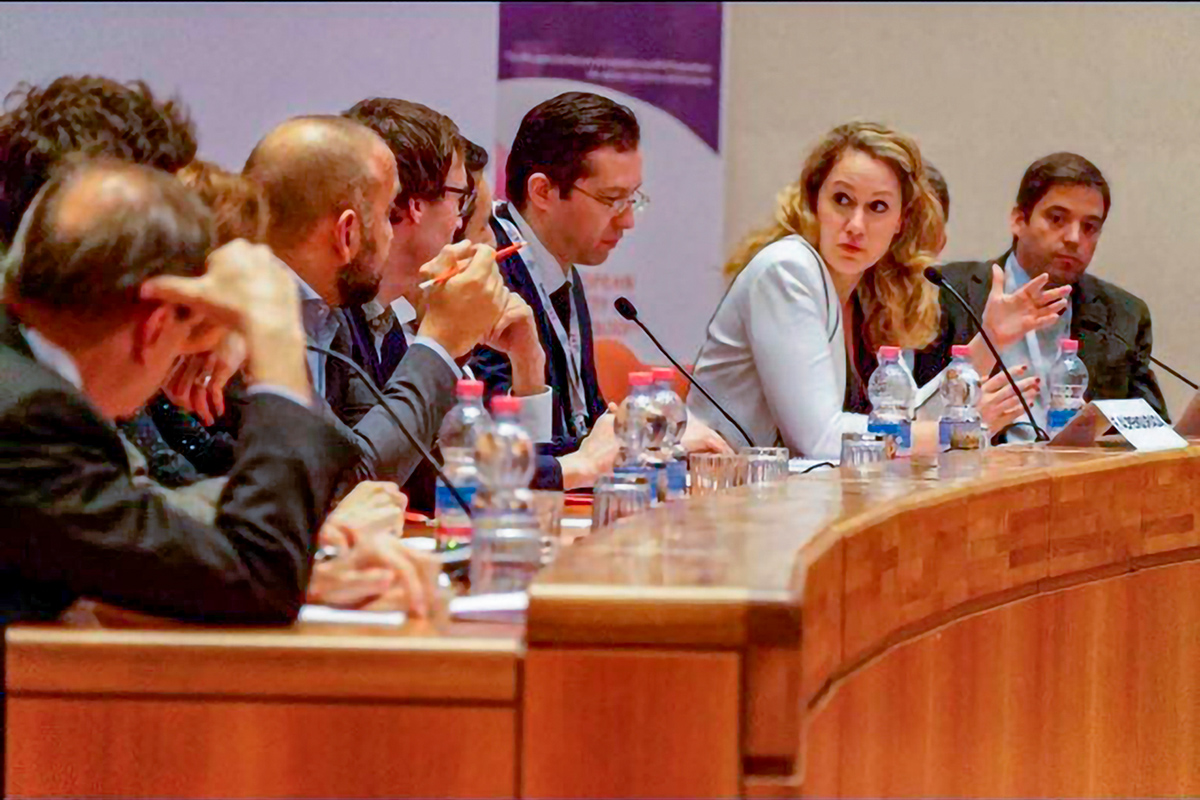
Who is the primary audience for JACC: Case Reports?
We view JACC: Case Reports as a forum that is a teaching tool. Thus, the content will be relevant for the entire spectrum of cardiovascular professionals, from FITs to senior cardiologists. We understand that FITs benefit from clinical activities, and we hope JACC: Case Reports will be a great opportunity for them to submit clinical cases and have their valuable work published.
In addition, we're creating a structure for interaction between cardiovascular professions. We've established a powerful editorial board with FITs who will join senior physicians in reviewing clinical cases and transforming cases into active education.
Furthermore, we will match a senior colleague with a FIT to provide an opportunity to interact through clinical cases, and through our Voices in Cardiology section. We're working to provide multiple platforms in which to engage FITs.
Are there audiences beyond physicians you're hoping to reach as readers and for submitting cases?
My experience as chair of the young community for imaging within the European Society of Cardiology (ESC) contributed significantly into understanding the needs of young people, helping them speak up and addressing their wonderful ideas and suggestions.
The journal also expands to allied health professionals such as physician assistants, nurses, physiologists, sonographers and scientists whom we wish to actively involve and make them a part of the team. Remember that clinical problem-solving involves many people – from junior physicians and their mentors to the many different members of the Cardiovascular Team who will look after the patient. That's why their contribution is crucial.
As a part of the JACC Family, I hope that within five years we will create a large mentoring platform, teach clinical cardiology and develop new pathways into clinical education.
Please share an example of a case report that's impacted your practice. Recently, I handled a clinical case with an interesting echo finding that I had never seen previously – despite being an imaging consultant and having performed thousands of scans. If that case was published, it would have a positive impact on clinical practice.
This is the aim of JACC: Case Reports: to complement clinical guidelines and to discuss how evidence-based medicine may impact clinical practice. Our goal is not only to highlight the rare cases, but also to present educational cases to guide physicians and to engage with them for clinical problem-solving.
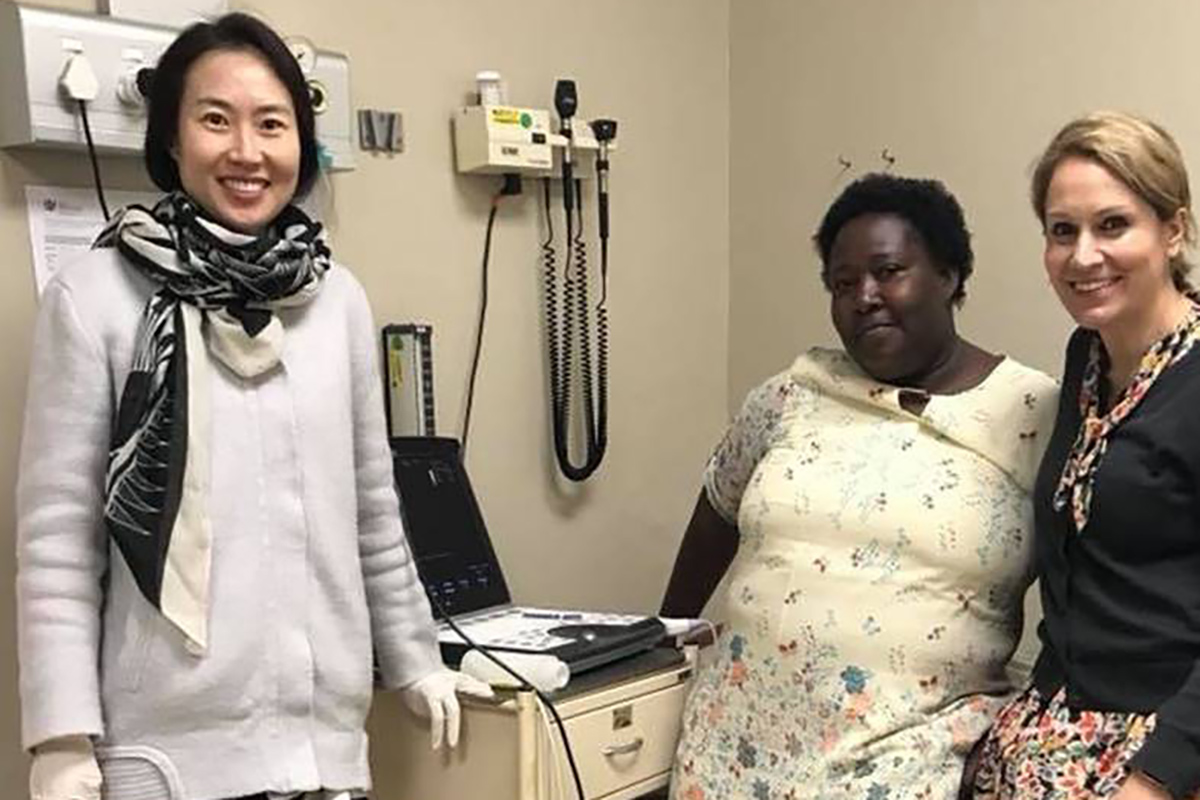
Tell us about your professional journey. Where did you go to med school and train? What has been your clinical and research focus?
I graduated from the Ioannina Medical School in Greece and moved to London for my training. The first three years of my training were quite challenging. (I encourage you to read the first issue of JACC: Case Reports wherein I explain my nonlinear career pathway in the Voices in Cardiology.) I got my first consultant job when I was 32 years old in Cambridge and then I moved to London.
My clinical areas of interest are heart failure and imaging with a focus in echocardiography. My research focus has been right heart remodeling. My PhD topic was the study of right ventricular remodeling in idiopathic pulmonary arterial hypertension with 3D echocardiography and cardiac magnetic resonance over a period of three years. I also have performed research studies on mitral and tricuspid valve disease.
You became an attending physician at a younger age and tackled your PhD and fellowship at an early stage. What's driven these early accomplishments?
In the United Kingdom (UK), it is essential to have a PhD to obtain a consultant post and that was my target when I started my cardiology training. However, I wanted to be flexible to work around the world.
I believe that family comes first, so I was not sure at the time whether I would stay in the UK, pursue a career in the U.S. or move home to Greece.
There was an intensive period of almost eight years when I was working nonstop. But I'm happy that I've reached this point of my career now, which gives me all the time and energy to dedicate to my family, my practice, and of course, to this journal.
Any mentors or others you'd like to thank or acknowledge?
Firstly, Constantine Anagnostopoulos, MD, who operated on my father in 2007, inspired me to pursue cardiology when I was a trainee. He is a great mentor: not only an excellent surgeon, but wonderful human being and family man. I would like to acknowledge Petros Nihoyannopoulos, MD, FACC, and David Dawson who were my teachers in echocardiography.
Patrizio Lancellotti, MD, FACC, trusted me to chair the young community for imaging in the ESC, which was my first leadership post. More recently, which have been a crucial few years, there are five people who gave me hope when I had no hope, who I want to thank: Lawrence G. Rudski, MD, CM, FACC; Robert A. Levine, MD, FACC; Michael H. Picard, MD, FACC; William A. Zoghbi, MD, MACC; and Jagat Narula, MD, DM, PhD, MACC.
You've also enjoyed athletic accomplishments. Share those with us and your athletic pursuits and passions.
I have a brother who is one year older than me and we were raised like twins. He inspired me to stay active with sports. We would watch football and basketball together.
At the age of 7, I started playing basketball and played for many years, including two years playing for the national team of Greece. I also love snow skiing and I tried some windsurfing. When I was in London, in 2015, I worked for Chelsea Football Club performing the cardiac screening.
Now, I enjoy watching football (soccer in the U.S.) and basketball. Whenever I am visiting the U.S. I try to watch NBA games, because the atmosphere is as if you're in a big celebration.
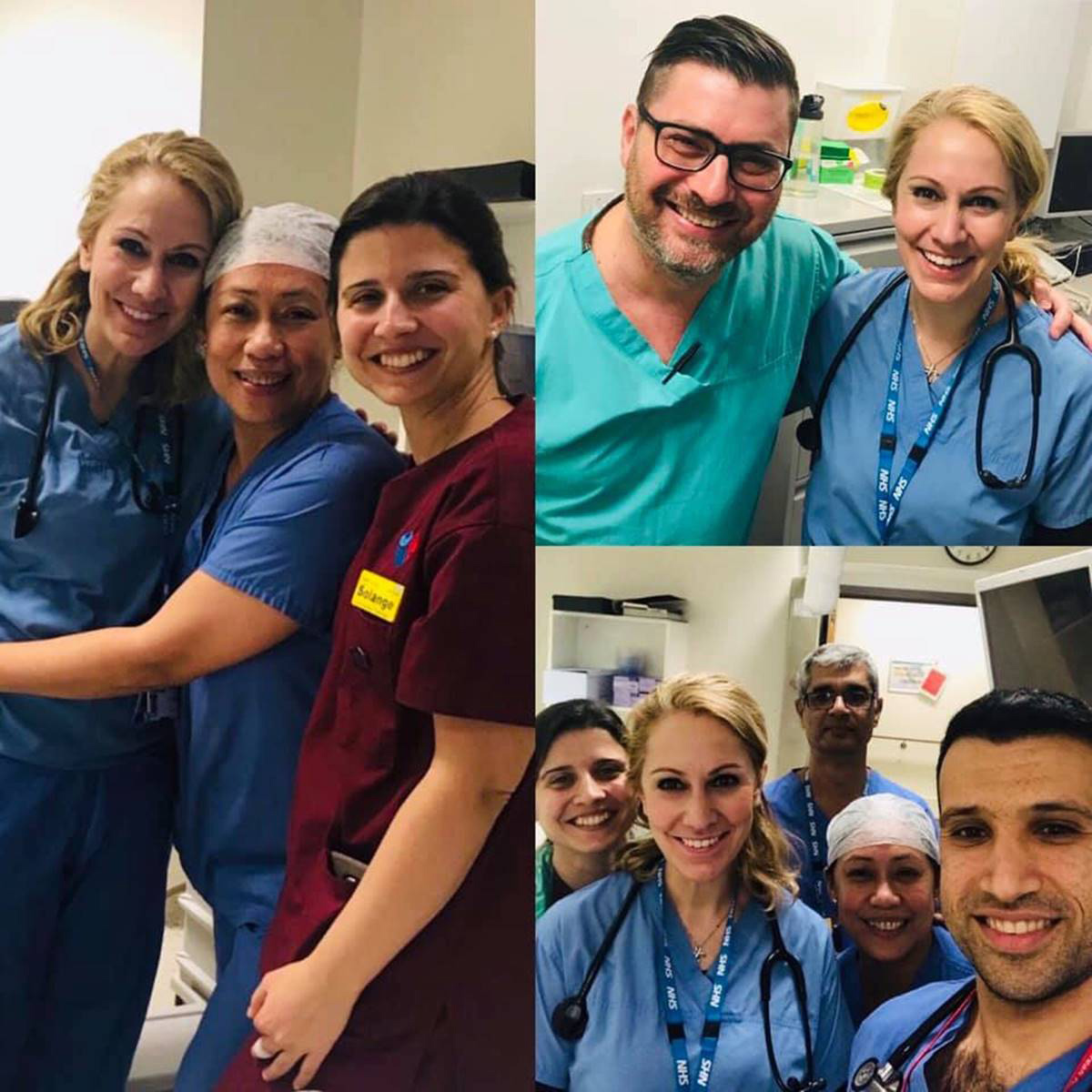
Any other passions outside of work?
I've always loved singing. When my father died, to mollify the grief and the pressure from the challenging work environment, I started singing opera. I owe a lot to my teacher Janet Hassouneh, from whom my knowledge expanded to musical theatre. I also love watching movies and cooking for friends.
A personal dream is to perform echocardiographic screening for developing countries in Africa or Asia. I really hope that together with other colleagues we will manage to merge forces to provide health care services there that are free of cost.
Do you have a favorite motto?
Since I was a child, I've kept a poem by Constantine Cavafy as a motto for my life in general:
Even if you cannot live your life as you wanted to, at least try this: as much as you can; do not humiliate it, into the affinity of the world, into the gestures and the conversations.
When I was working at Royal Brompton Hospital in London, a friend reminded me of this Latin motto, which has been very motivating for my work: Every man is the architect of his own fortune.
If we were sitting at your desk, what would we see?
A lot of notebooks and pens. I have a different notebook for each project. Sometimes you may find Alex – my rescued cat from the Middle East – sleeping between the screen of the desktop and the keyboard.
What's your "power" time of day when you're most productive and creative? When I get back from the hospital, I have some rest, and then I like sitting in front of my desktop with a cup of coffee and start working on JACC: Case Reports or other projects.
What one word would your best friend use to describe you?
I asked my best friend, and she said "selfless" because I always care about the other person. I do try to mentor and promote my colleagues. I've always tried to promote younger colleagues and give them the visibility they deserve.
One word you'd use to describe yourself.
"Hard-worker" as I've worked hard for many years. There were weeks that I would work seven nights in a row.
What's your main strategy for maintaining your own well-being?
The last two years have been particularly hard for me. Now, I'm working to reinstate a better lifestyle of a healthy diet and exercise. I walk every day for 45 minutes to work, and I'm going to the gym as well as Pilates.
What's your favorite Greek food?
I love cooking Mediterranean dishes, especially traditional Greek dinners. My memories as a child include my mother and my two grandmothers cooking. We even make our own bread as we have a wood oven back home. I like to make stuffed tomatoes and peppers, moussaka and a dip of tzatziki with some pita bread and fresh olive oil.
Favorite London restaurant?
I love the street food at Bermondsey, as well as a dinner at Alain Ducasse in Dorchester. Most important is to have good company – that makes the difference.
Last words to our readers about JACC: Case Reports?
We look forward to receiving clinical cases and case series, along with stand-alone figures/videos or even a multipanel figure for the clinical vignette, as well as working together with our electrophysiologists for ECG vignettes.
We want all our authors and reviewers to feel like they are members of this family. This is the reason the Editorial Board and I will do our best to mentor and promote young colleagues. We look forward to reading your manuscripts!
Clinical Topics: Cardiovascular Care Team, Diabetes and Cardiometabolic Disease, Heart Failure and Cardiomyopathies, Noninvasive Imaging, Prevention, Pulmonary Hypertension and Venous Thromboembolism, Sports and Exercise Cardiology, Vascular Medicine, Acute Heart Failure, Pulmonary Hypertension, Echocardiography/Ultrasound, Hypertension, Sports and Exercise and Imaging
Keywords: ACC Publications, Cardiology Magazine, Mentors, Consultants, Hypertension, Pulmonary, Ventricular Remodeling, Access to Information, Tricuspid Valve, Echocardiography, Echocardiography, Three-Dimensional, Problem Solving, Physician Assistants, Education, Medical, Heart Failure, Medical Staff, Hospital, Magnetic Resonance Spectroscopy, Electrocardiography, Sports, Evidence-Based Medicine
< Back to Listings


